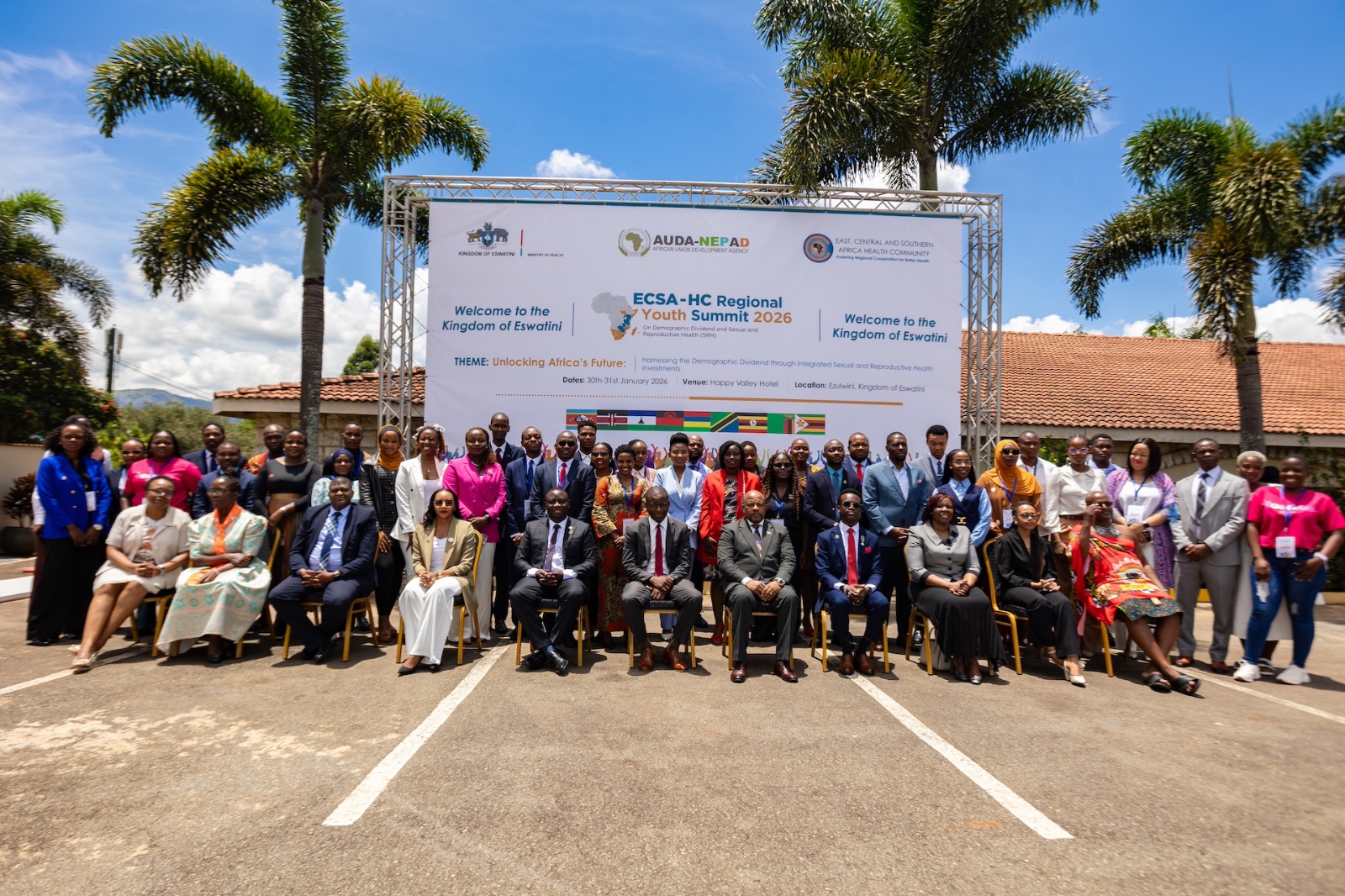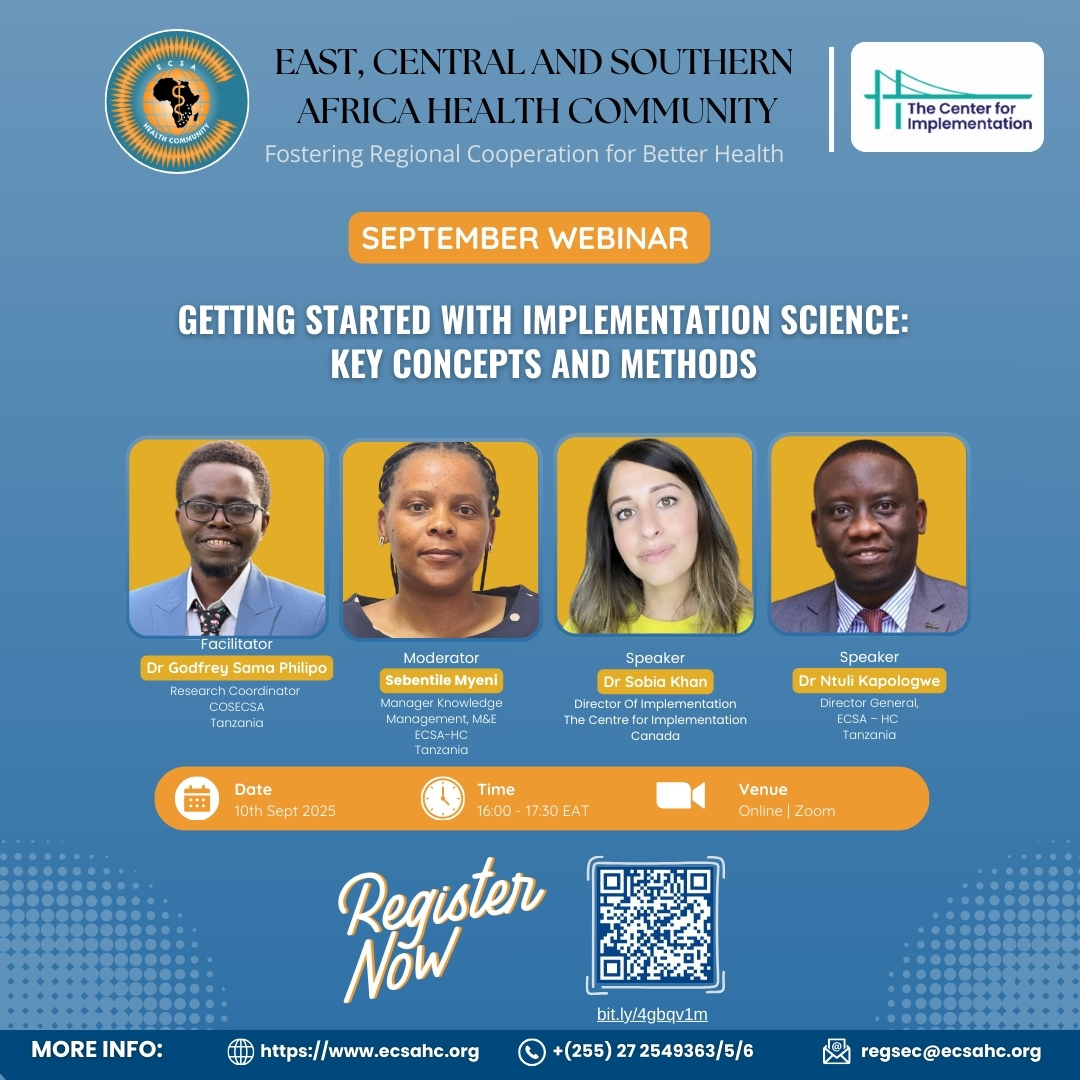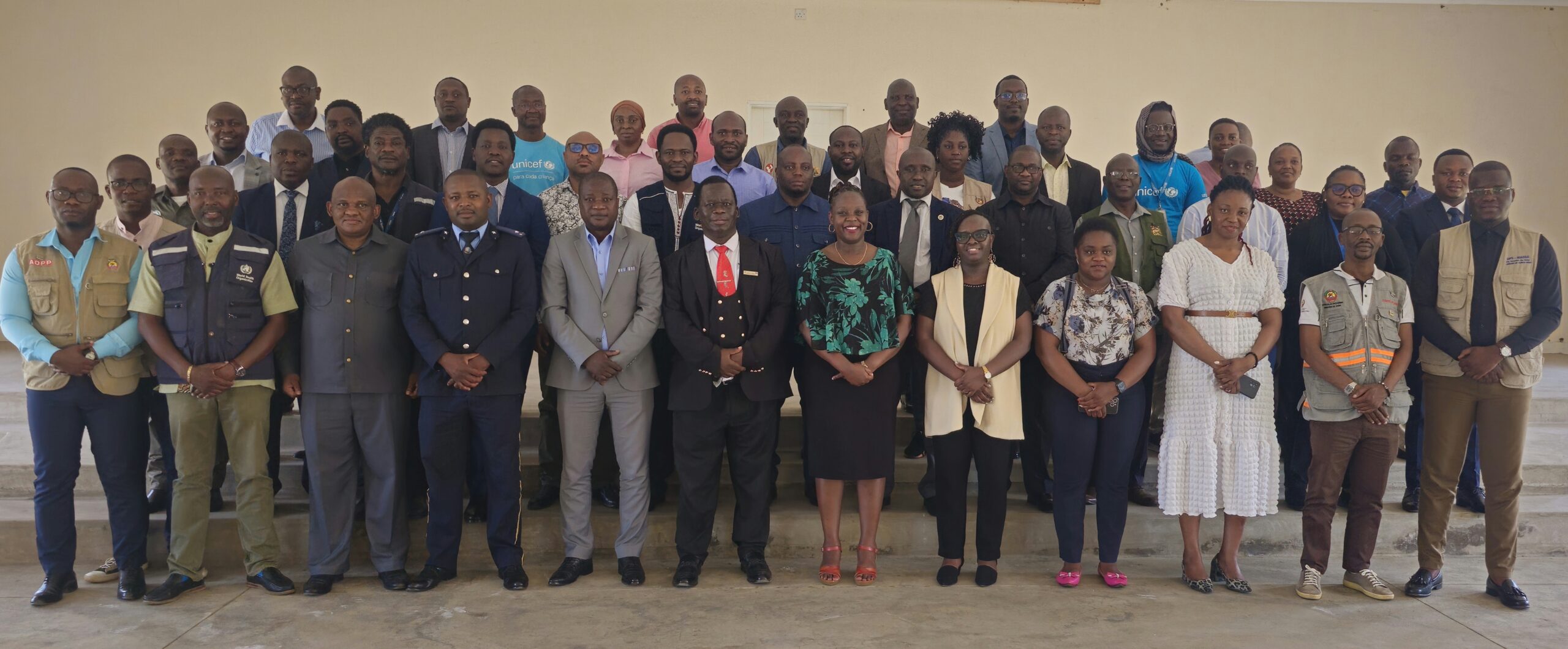The East, Central, and Southern Africa Health Community (ECSA-HC) is holding the first-ever Regional Youth…
Strengthening Rwanda’s Mpox Preparedness: A Comprehensive Guideline Development Workshop
In response to the emergence of Mpox in Rwanda, a critical workshop took place from August 5th to 9th, 2024, in Nyamata Town, Bugesera District. Organized by the East, Central, and Southern Africa Health Community (ECSA-HC) with support from the World Health Organization (WHO-Rwanda), the workshop aimed to bolster Rwanda’s public health preparedness by developing a national guideline for the surveillance and control of Mpox. This effort was prompted by the confirmation of Mpox cases in Rwanda following 25 cases reported in Goma, Democratic Republic of Congo in July 2024.
Mpox, previously known as Monkeypox, presented a significant public health threat in Rwanda in mid-2024. With confirmed cases but no formal framework in place to prevent, monitor, and manage the disease, it became apparent that immediate action was necessary. The workshop was convened to fill this gap, ensuring that Rwanda could respond effectively to current and future outbreaks. ECSA-HC, under its Health Emergency Preparedness Response and Resilience (HEPRR) initiative, prioritized this effort to align with ongoing emergency response strategies, following closely after the completion of Rwanda’s Public Health Emergency Operations Center (PHEOC) handbook.
The main objective of the workshop was to create a comprehensive national guideline for Mpox surveillance and control, focusing on several critical areas. These included establishing robust systems for detecting and monitoring Mpox cases, developing prevention and control strategies to curb transmission, enhancing the diagnostic capacity of laboratories, and improving communication efforts to inform the public and healthcare workers about the risks and prevention methods. The workshop also aimed to strengthen coordination among key stakeholders, define clinical management protocols, integrate mental health support into outbreak response, and implement infection prevention measures in healthcare settings. Additionally, a One Health approach was adopted to address the interconnected aspects of human, animal, and environmental health in Mpox management.
Over 40 professionals from diverse health sectors participated in the workshop, including experts from the RBC, PHEOCs, hospitals across Rwanda, WHO-Rwanda, Africa CDC, UNICEF-Rwanda, and ECSA-HC. This broad representation ensured the development of comprehensive guidelines tailored to the Rwandan context, leveraging insights from various disciplines.
The workshop combined presentations, working group sessions, and plenary discussions to achieve its objectives. ECSA-HC experts initiated the workshop by providing an in-depth orientation on Mpox, covering its transmission, clinical features, and epidemiology. Participants were divided into groups, each focusing on a specific area of the guideline. These groups engaged in intensive discussions and collaborations, refining the guidelines over multiple plenary sessions.
By the workshop’s conclusion, the draft Mpox guideline was finalized and submitted to the ECSA-HC technical team. The draft will undergo further review by the RBC and the Ministry of Health before being implemented nationwide.
The workshop successfully achieved its goal of drafting a comprehensive guideline for Mpox surveillance and control in Rwanda. Some key outcomes include:
• Standardized Case Definitions and Reporting Protocols: Clear processes for identifying and reporting Mpox cases were established for nationwide use.
• Prevention and Control Strategies: A set of community-level interventions were developed to prevent the spread of Mpox.
• Enhanced Laboratory Capacity: Diagnostic algorithms were agreed upon, improving testing protocols at the National Reference Laboratory.
• Risk Communication Strategy: A framework was designed to guide public messaging on Mpox prevention and control.
• Coordinated Collaboration: Effective mechanisms for collaboration among stakeholders were established to ensure a unified response to outbreaks.
• Inclusion of Mental Health Support: Mental health and psychosocial support were incorporated into the Mpox management framework.
• Strengthened IPC Measures: New guidelines were introduced to minimize the transmission of Mpox in healthcare settings.
• One Health Integration: The adoption of a One Health approach, considering human, animal, and environmental health, was a significant achievement in Mpox management.
This workshop marks a critical step forward in Rwanda’s preparedness for Mpox and other emerging public health threats. By developing a tailored national guideline, Rwanda is now equipped with the tools necessary to effectively manage Mpox outbreaks. The collaboration between ECSA-HC, WHO-Rwanda, and other stakeholders highlights the importance of regional and international partnerships in tackling health emergencies. The Mpox guideline will serve as a vital resource in safeguarding Rwanda’s public health and reinforces the country’s commitment to strengthening health systems for future challenges.



